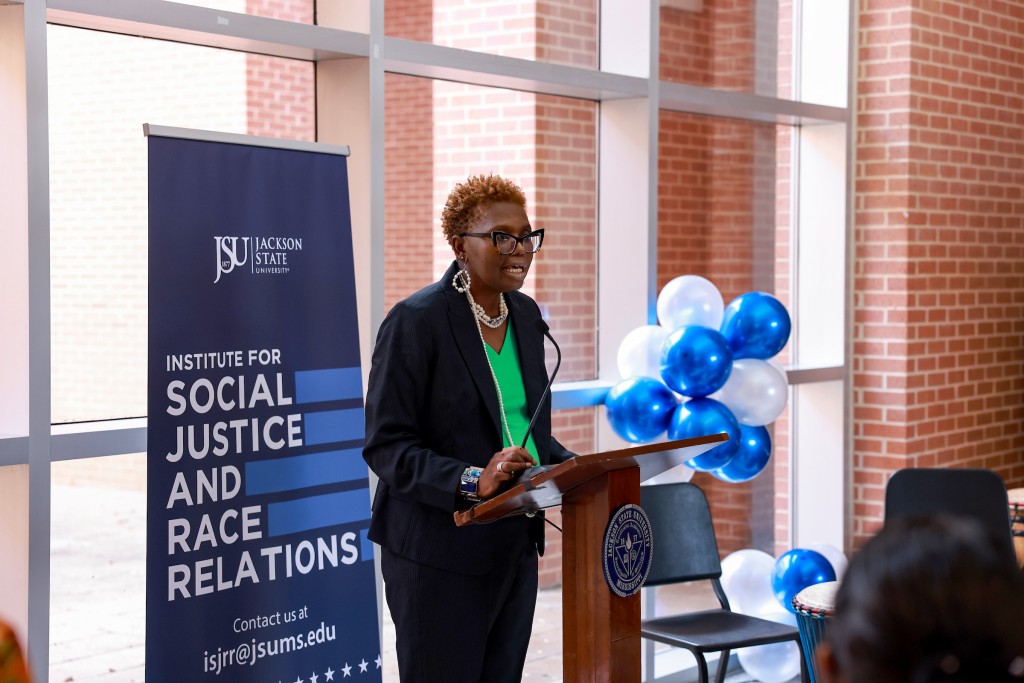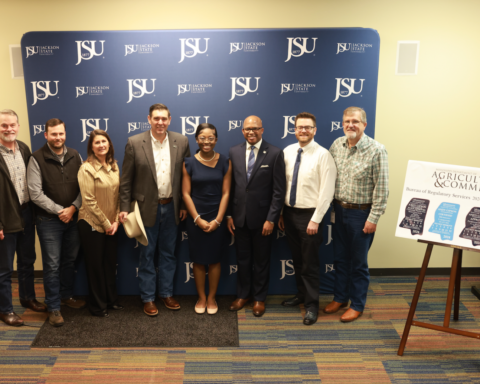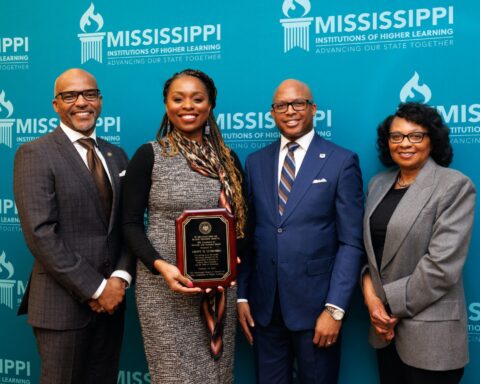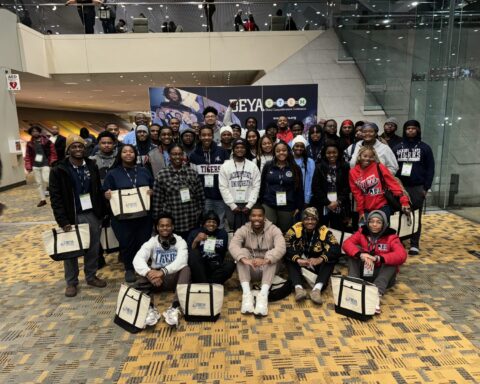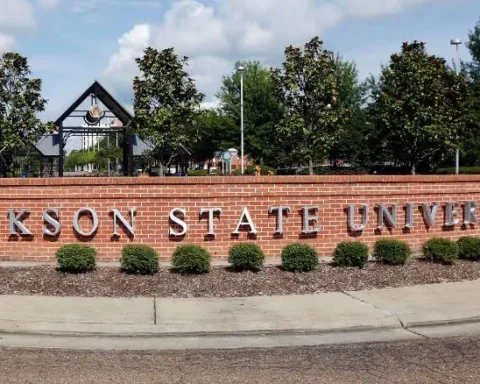By Rachel James-Terry
Jackson State University relaunched the Institute for Social Justice and Race Relations on Thursday, Feb. 24, in the College of Liberal Arts. The relaunch signals a new milestone in the university’s history. The original institute opened in 2013, but a lack of funding halted programming four years later.
“The overall goal is to create a social science laboratory and a digital platform to inform, study, preserve, and develop theory on social justice and race relations,” said ConSandra McNeil, Ph.D., assistant provost, who serves as the activity director for the institute.
McNeil shared that the institute will simultaneously act as a multifaceted multimedia resource to engage and educate students, the academic community, and the public regarding matters of social justice, activism and race relations.
Title III funding is the catalyst for the institute’s reopening. Associate Vice President of Student Success Mitchell Shears, Ph.D., also serves as the executive director of Title III. He gave insight into how the implementation of social justice and race relations exacts change and how Title III serves as an example.
“President Lyndon B. Johnson’s War on Poverty had as one of its components the Higher Education Act of 1965, which is an example of several laws that challenge the poverty, racism, and sexism that prevent equal access to education,” said Shears.
He explained that the act was designed to advance the work of colleges and universities by supporting educational, economic, and social mobility among diverse groups. It was also intended to aid students from low-income families and those from underrepresented groups, making it possible to attain post-secondary education.
Shears pointed out that despite 57 years of funding availability and the bolstering of the HBCU space, HBCUs are still not where they need to be.
“Thus, we are still fighting for equality and equity. While we have and still do recognize that everyone has different circumstances, we are still fighting for allocations to provide the same resources and opportunities needed to reach an equal outcome,” he added.
JSU Provost Alisa Mosley, Ph.D., recalled her days as a student rocking t-shirts with Black empowerment mantras emblazoned across the front with: “The blacker the college, the sweeter the knowledge,” or “It will take a nation of millions to hold us back.”
During her college years at Florida A&M University, Mosley said she was exposed to activists such as Nikki Giovanni, Cornell West, and Bob Moses. Those experiences helped shape how she saw the world and how her major connected to that.
“I wanted students to have these kinds of experiences so no matter what your major, you begin to look to your institution, your dear old college home to help you frame some of these discussions,” said Mosley, who assisted in laying the groundwork for the relaunch.
After stumbling upon papers that detailed a previous institute, Mosley sent the information to McNeil, who began planning the reinvention of a new Institute for Social Justice and Race Relations.
“This time, it’s going to be different. So, I thank everybody who is coming back to us through this reinvigoration or re-envisioning. But it must be different,” urged Mosley. “And we must respond to the cause that I hear as I walk down the pedestrian walkway, and that’s students asking questions about how we should view what is all around us and what is the action that we can do in our respective areas; to really make a difference.”
Among guest remarks, the ribbon-cutting event was an enriching exhibit of performances. Dr. Phyllis Lewis-Hale, assistant professor of music, belted out a riveting version of “This Little Light of Mine.”
Retired JSU English Professor C. Liegh McInnis recited a stirring self-penned poem called “Rerun” that talked about the repetitive lynching of Black people. Thaddaeus Smith, a student at JSU, narrated a poem about the role of white people in the struggle to end racism.
The JSU African Drum and Dance Ensemble was also on hand and moved attendees, who exploded with thunderous applause for all the performers.
Lichelle Brown, a graduating senior, described the gathering as “church.”
“The program was beautiful. It was a beautiful display of people, culture, and poetry. The songs and music were, honestly, just amazing,” said the sociology major.
Carlos Nelson, Jr., a senior sociology major, shared that he is anxious to see what will come next for the institute. “I imagine there will always be a new project, new speakers, and more students who will find their voice and passion for helping our people,” he said.
Nelson said the relaunch is significant because racism has been a problem in Mississippi more than anywhere else in the world and persists as an issue today.
Brown added that the institute is sociology at its finest. “It’s our culture, but we’re fighting for something so much bigger than us.”
From 2013 to 2017, the institute held over 189 public programs and community events and had more than 13,487 program participants. It provided more than 58 Heritage Tours and over 1,300 Heritage Tour participants.

